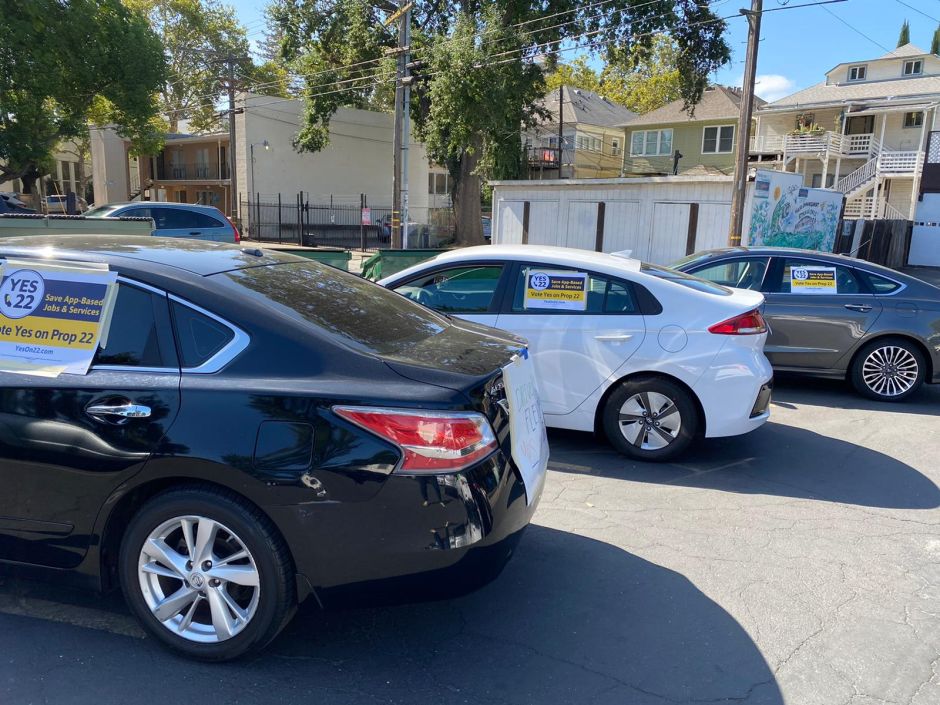Uber Driver Talks About The Positives Of Being A Freelancer; but not everyone supports the measure
Rodolfo Valdivia has been an Uber driver for more than four years and assures that he enjoys working as an independent driver since he has the freedom to decide how many hours he works during the day and in what time he works.
He is one of those who are in favor of Proposition 22, which will be put to a vote on November 3. Given this, this worker who advocates the flexibility of time allowed by his job, asks California voters to vote “Yes.”
“I was an electrician and I started driving part time for Uber to make some extra money,” says Rodolfo, who is a single father.
Over the months, she realized that flexibility at work was very important to be able to accommodate schedules and spend time with her 11-year-old daughter. Thus, she chose to quit her job as an electrician and took up ridesharing work for Uber, Lyft and Uber Eats.
During an interview with La Opinion, he said that now due to his flexible working hours, he sees his daughter more, something that, he indicates, he would not be able to do if he were in a regular job from 8:00 am to 5:00 pm; and that also receives the necessary income.
There are an estimated one million Californians who work in ridesharing or delivery services each year, said Geoff Vetter, spokesman for the Yes on Proposition 23 campaign.
“But studies show that if there were an employment model, it would only take around 100,000 drivers, so around 900,000 Californians would miss out on doing ridesharing and delivery work,” he said.
Supporters of the measure said that California passed AB 5 in 2019, threatening to make it illegal for app-based drivers to be self-employed.
The law requires that they be considered employees and with this, they are offered the benefits that they imply: sick days, medical insurance, vacations, among others.
Rodolfo assures that he does not need any of that since he takes care of obtaining them on his own since he considers his salary much better than when he was an electrician.
He asserted that he is in charge of doing his own quarterly taxes and obtaining affordable health insurance through Covered California.
Now, Prop. 22 indicates that it will grant benefits when the driver reaches a certain number of hours in “engage time”. This term refers to time in service; that is, when there is a passenger on board or when a delivery is being made.
Therefore, the waiting time between one client and another to reach the number of hours necessary for the benefits that Prop. 22 seeks to offer will not be taken into account.

However, Rodolfo says that a driver who is dedicated to making money on rideshare transportation will never have much free time between one passenger and another.
“I have spoken with other drivers and my experience as well and I know that the only downtime there is between midnight and two in the morning.” And he added that in total hours in the week and earnings, he earns at least $ 40 an hour.
“I can tell you that I have made $ 200 and something per hour, or I can make $ 110 in 35 minutes,
depending on the trip, the time and the place where one is, ”he indicated.
If Proposition 22 passes, nearly 900,000 jobs would be saved by protecting the
drivers who decide to be employed as independent contractors, with control over where, when and how long they work and for whom, explained the spokesperson for the campaign by saying “Yes.”
Not all agree
It is estimated that 80% of drivers do so part time and drive less than 20 hours a week.
Given this, opponents of the measure say that, if approved, it would only be the next step to erase a battle that application companies have had against regulation and against basic rights.
Alma Hernández, executive director of SEIU California, who favors “No” for Proposition 22, said that application companies do not pay for that time between passenger and passenger or between deliveries and that this time is compensable according to the law current.
“Many times drivers spend almost half of their time without a passenger,” Fuentes said. “The proposal does not cover full expenses, so drivers will be paid essentially as below-minimum wage.”









